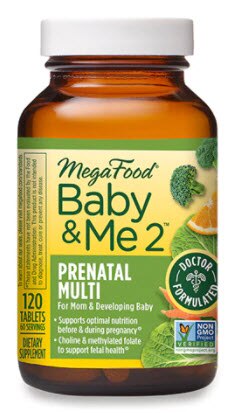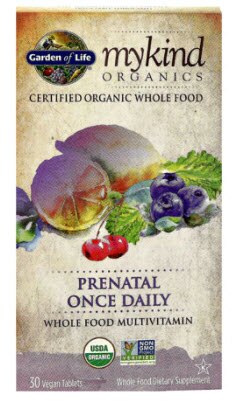Probiotics offer numerous benefits for gut health, but can you take probiotics while pregnant? Are they just as effective—and, most importantly, safe?
Gut health during pregnancy is a complex issue, and probiotics are only part of the picture. To decide whether or not to supplement, you need to start by knowing what’s going on in your gut as your baby develops.
Your microbiome changes during pregnancy
It’s normal for your microbiome to change during pregnancy. Between the first and third trimesters, the composition shifts, and a few microbial groups become more abundant. This decrease in what’s known as “alpha diversity” creates a pro-inflammatory state, which is reflected in metabolic changes like weight gain, decreased insulin sensitivity and higher levels of inflammatory markers in your stool.
An increase in pro-inflammatory microbes like Firmicutes and Proteobactreia may be partly responsible for these changes. At the same time, butyrate-producing bacteria like Faecalibacterium decrease in abundance. Butyrate is a short-chain fatty acid (SCFA) that helps maintain a healthy gut lining. It may also have anti-inflammatory effects, which are reduced as the balance between microbes changes.
Although this process is normal, it’s still important to take care of your gut during pregnancy. Disruptions in the microbiome can increase your risk of pre-eclampsia, diabetes, infection and preterm labor and may predispose your baby to having an overactive immune system.
Preventing excessive weight gain can help maintain a healthy microbial balance, but what about taking probiotics?
Babies may benefit from probiotics during pregnancy†
Research suggests taking probiotics while pregnant may have benefits that reach beyond your own gut. Keeping your microbiome healthy could benefit you and your baby by:
- Reducing your baby’s inflammatory markers†
- Reducing your baby’s risk of allergies†
- Strengthening and training the developing immune system to offer better protection against pathogens†
- Reducing the risk of skin diseases like eczema in infancy and early childhood†
- Increasing term length to reduce risk of preterm birth†
- Reducing your risk of gestational diabetes†
Many of these benefits appear to result from changes in gene expression, known as epigenetics. This happens through bacterial translocation, a process in which probiotic microbes pass from your gut to the placenta, where they can influence your baby’s development.
SCFAs may also play a role, particularly in helping your baby’s immune system learn to tell the difference between normal cells and pathogens. The SCFAs your gut microbes produce when you’re pregnant could affect the development of regulatory T-cells, which prevent inappropriate immune reactions. SCFAs from your microbiome can also strengthen your baby’s gut barrier and reduce the risk of inflammation and disease.
Can you take probiotics while pregnant to increase SCFA production? Yes, but it’s also important to feed those beneficial microbes by replacing high-fat, high-sugar ultra-processed foods with healthy, high-fiber foods like fruits, vegetables, whole grains and beans. The more fiber you eat, the more SCFAs your microbiome can make.
Babies get probiotics while breastfeeding
Breast milk may also transfer some of the bacteria from your microbiome to your baby, possibly offering further benefits for immunity. Scientists have discovered bacterial DNA signatures in mothers’ breast milk, which suggests gut bacteria travel not only to the placenta but also to the mammary glands.
Taking probiotics during pregnancy and while breastfeeding doesn’t appear to provide any additional protection or benefit beyond what occurs naturally. There’s likely no need to supplement, as breast milk is already a rich source of natural probiotics and prebiotics that support your baby’s developing microbiome.
Probiotics are safe during pregnancy
However, probiotics could have benefits for you during and after pregnancy. Existing research shows that supplementing with beneficial bacteria is generally safe for you and your developing baby.
Some evidence suggests probiotics could reduce postpartum depression symptoms. Specific strains, such as the beneficial yeast Saccharomyces boulardi, can help prevent digestive discomfort, especially if you need to take an antibiotic during your pregnancy. Because probiotic research is ongoing, additional strains with particular benefits for pregnant women may be identified in the future.
Whether or not you choose to take probiotics during pregnancy, maintaining good gut health is important. Current research suggests that a robust, balanced microbiome in Mom has positive effects on babies’ health. Discuss any existing gut issues with your doctor to determine if a probiotic supplement is right for you.
†These statements have not been approved by the Food and Drug Administration. These products are not intended to diagnose, treat, cure or prevent disease.



